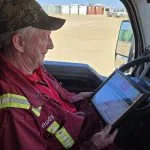
Montreal Lake Cree Nation evacuates priority residents due to wildfire smoke
While there is no immediate danger to the community, leadership at Montreal Lake Cree Nation have issued an evacuation order due to smoke from the fire burning just to the north.
“The smoke is fast-moving, and individuals who are listed on the Priority 1 and Priority 2 list must start evacuation immediately due to high density of smoke that will be reaching the community,” the order read.
Montreal Lake’s priority list consists of people with existing respiratory conditions (e.g., asthma, lung cancer, COPD), people with existing cardiovascular conditions (e.g., angina, previous heart attack, congestive heart failure), infants under 6 months old, the elderly, pregnant women, and people with diabetes.
Residents leaving the community will be housed in North Battleford. So far, evacuations have taken place in a resort subdivision Lac La Plonge, La Plonge Reserve, Northern Village of Beauval, Jans Bay, and Kinoosao. P1 and P2 residents from Patuanak/English River First Nation, Canoe Lake/Cole Bay/Canoe Narrows have been evacuated.



